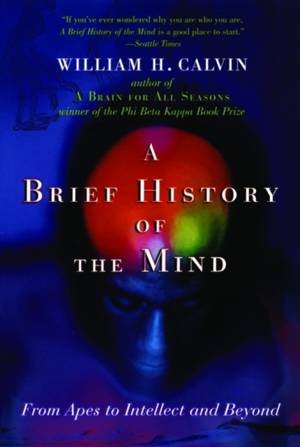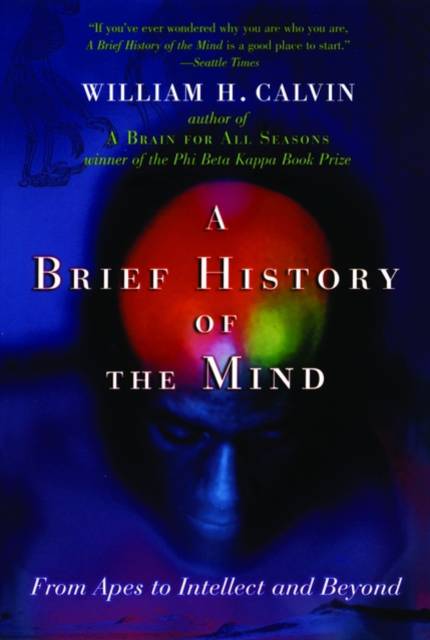
Je cadeautjes zeker op tijd in huis hebben voor de feestdagen? Kom langs in onze winkels en vind het perfecte geschenk!
- Afhalen na 1 uur in een winkel met voorraad
- Gratis thuislevering in België vanaf € 30
- Ruim aanbod met 7 miljoen producten
Je cadeautjes zeker op tijd in huis hebben voor de feestdagen? Kom langs in onze winkels en vind het perfecte geschenk!
- Afhalen na 1 uur in een winkel met voorraad
- Gratis thuislevering in België vanaf € 30
- Ruim aanbod met 7 miljoen producten
Zoeken
€ 40,45
+ 80 punten
Omschrijving
This book looks back at the simpler versions of mental life in apes, Neanderthals, and our ancestors, back before our burst of creativity started 50,000 years ago. When you can't think about the future in much detail, you are trapped in a here-and-now existence with no "What if?" and "Why me?" William H. Calvin takes stock of what we have now and then explains why we are nearing a crossroads, where mind shifts gears again.
The mind's big bang came long after our brain size stopped enlarging. Calvin suggests that the development of long sentences--what modern children do in their third year--was the most likely trigger. To keep a half-dozen concepts from blending together like a summer drink, you need some mental structuring. In saying "I think I saw him leave to go home," you are nesting three sentences inside a fourth. We also structure plans, play games with rules, create structured music and chains of logic, and have a fascination with discovering how things hang together. Our long train of connected thoughts is why our consciousness is so different from what came before.
Where does mind go from here, its powers extended by science-enhanced education but with its slowly evolving gut instincts still firmly anchored in the ice ages? We will likely shift gears again, juggling more concepts and making decisions even faster, imagining courses of action in greater depth. Ethics are possible only because of a human level of ability to speculate, judge quality, and modify our possible actions accordingly. Though science increasingly serves as our headlights, we are out-driving them, going faster than we can react effectively.
The mind's big bang came long after our brain size stopped enlarging. Calvin suggests that the development of long sentences--what modern children do in their third year--was the most likely trigger. To keep a half-dozen concepts from blending together like a summer drink, you need some mental structuring. In saying "I think I saw him leave to go home," you are nesting three sentences inside a fourth. We also structure plans, play games with rules, create structured music and chains of logic, and have a fascination with discovering how things hang together. Our long train of connected thoughts is why our consciousness is so different from what came before.
Where does mind go from here, its powers extended by science-enhanced education but with its slowly evolving gut instincts still firmly anchored in the ice ages? We will likely shift gears again, juggling more concepts and making decisions even faster, imagining courses of action in greater depth. Ethics are possible only because of a human level of ability to speculate, judge quality, and modify our possible actions accordingly. Though science increasingly serves as our headlights, we are out-driving them, going faster than we can react effectively.
Specificaties
Betrokkenen
- Auteur(s):
- Uitgeverij:
Inhoud
- Aantal bladzijden:
- 240
- Taal:
- Engels
Eigenschappen
- Productcode (EAN):
- 9780195182484
- Verschijningsdatum:
- 8/10/2005
- Uitvoering:
- Paperback
- Formaat:
- Trade paperback (VS)
- Afmetingen:
- 141 mm x 209 mm
- Gewicht:
- 276 g

Alleen bij Standaard Boekhandel
+ 80 punten op je klantenkaart van Standaard Boekhandel
Beoordelingen
We publiceren alleen reviews die voldoen aan de voorwaarden voor reviews. Bekijk onze voorwaarden voor reviews.









